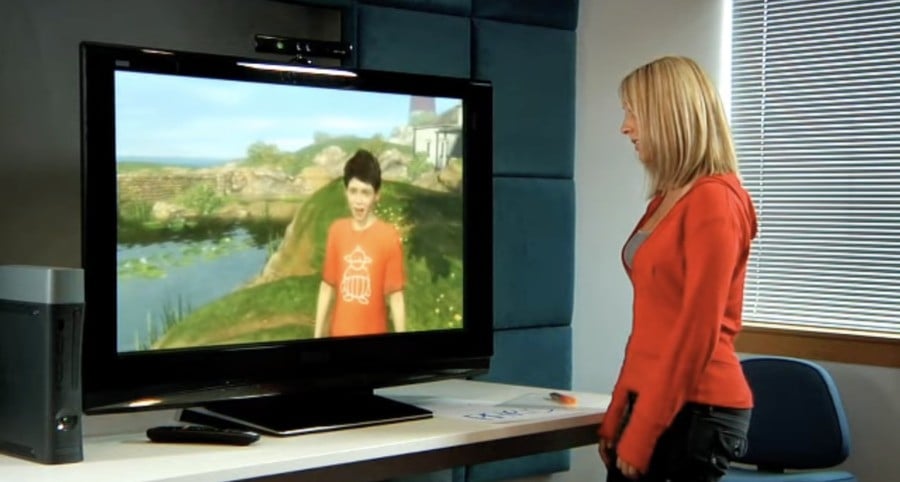
Peter Molyneux is one of the most famous game designers the industry has ever seen, and has been involved with seminal titles like Populous, Black & White, Theme Park and Fable. He's also known for hyping up his projects, sometimes to the point where they couldn't possibly satisfy his lofty vision—and perhaps the most infamous example of this is the unreleased Kinect game, Project Milo (also known as Milo & Kate).
Shown in 2009 as a technical demonstration of Kinect's motion-sensing and voice-recognition capabilities, it focused on the player's interactions with a young boy. To this day, there are many who claim it was complete fakery, and at the time of its announcement, Molyneux himself admitted that "most of it is just a trick; but it's a trick that works."
However, during a recent Q&A session at Nordic Game 2025 in Malmö (thanks, GamesIndustry.biz), the famous designer went into a little more detail about this ill-fated venture.
Molyneux first explains what happened when Kinect—then known as Project Natal—was presented to him:
I might get in trouble...what I thought was a bit of a crazy idea. And that was to do gesture recognition as an input device, rather than a controller. They showed me this stuff, and Microsoft had this amazing research building. Incredible.
It was run by this brilliant bloke called Alex Kipman. Makes me look boring and passionless – he had ten times more passion than I had. He had this demo of this device, and when he showed me this demo, it could see people's faces. He said, 'it can do voice recognition', and it had a massive field-of-view so it could see this whole room.
He said, 'what do you think?', and I said, 'well, firstly' – when he did the demo, he was jumping all over the room – 'I'm a gamer, I don't want to play games standing up. That's the first thing. It doesn't appeal to me, I want to sit back, I want to smoke what I smoke, and I want to drink what I want to drink, and I don't want to prance around like a twat'. I said, 'I'll go away and I'll create a demo of [how we should use] the technology you showed me.'
Molyneux's famous high-concept thinking then came into play. "Wouldn't it be incredible to create an experience around that? About inspiring, in Milo's case, a boy. That was contentious in itself, because of course, lots of people go to the dark side with that [idea]," he adds.
Lionhead began working on the idea, and this included cheating "in a big way about how you could talk to Milo", according to Molyneux:
Even though voice recognition now is almost a solved problem, back in those days we solved the problem by cheating. So, when Milo asked you the player a question, we had set that question up to different points, so he knew what sort of answer he'd give.
Things became tricky for the project when Kinect was cost-reduced in order to make it a mass-market product; the original spec Kinect would, according to the designer, cost $5,000 at retail. "So they cost-reduced that device down to such a point, where the field-of-view...I think it was a minuscule field-of-view. In other words, it could only just see what's straight in front of you."
Microsoft then moved the goalposts with Kinect, and this ultimately led to the cancellation of Milo. "The death blow of Milo, which still breaks my heart to this day, was that it was decided that Kinect shouldn't be a gaming device: it should be a party device," says Molyneux. "You should play a sports game with it, or dancing games with it. So, it just didn't fit into the Microsoft portfolio, and unfortunately, the project was cancelled."
So, while Milo has gone down as little more than smoke and mirrors, Molyneux insists that the "full" experience would have been more convincing:
No one ever saw the complete experience. We didn't finish the experience. But it was a magical thing. What was so magical about it: it wasn't about heroes and aliens coming down, there wasn't this 'end of the world' narrative scenario. It was just experiencing what it's like to hang out with someone that loves you.
Since leaving Microsoft, Molyneux has established his own studio, 22cans, which created the controversial smartphone title Curiosity: What's Inside The Cube. He's currently working on Masters of Albion.
